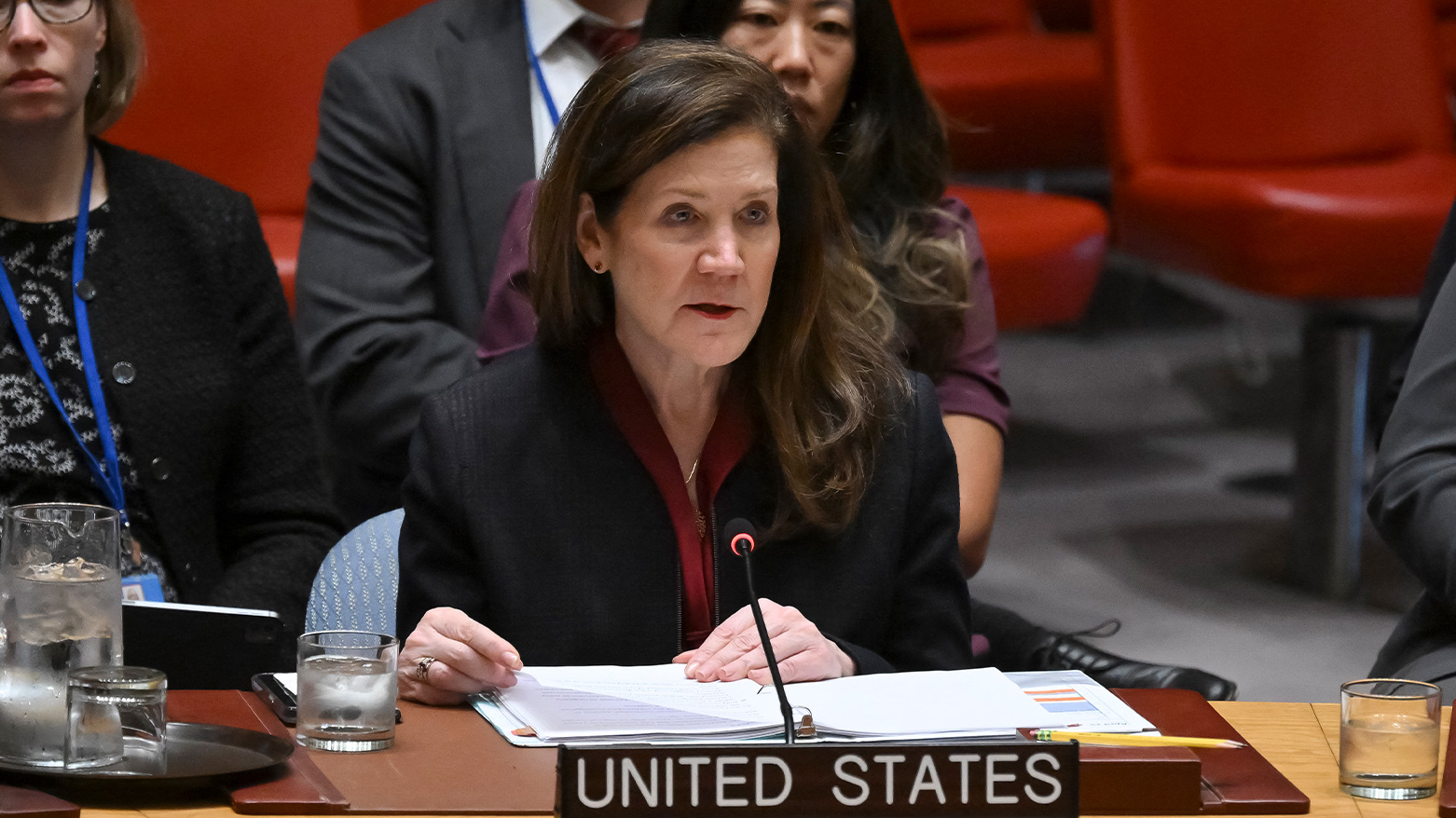'Aleppo Agreement a Model, We Expect Progress in Afrin and Beyond,' U.S.
U.S. envoy Dorothy Shea praised the March 10 SDF–interim authority deal as a model for reconciliation, citing peaceful force integration in Aleppo and encouraging progress in Afrin, Deir Ezzor, and around the Tishreen Dam.

By Kamaran Aziz
ERBIL (Kurdistan24) – In a strongly worded address to the United Nations Security Council on Friday, Ambassador Dorothy Shea, the U.S. Chargé d’Affaires to the UN, outlined Washington’s expectations for Syria’s interim authorities, reaffirming American support for a stable, accountable, and unified post-Assad Syria while warning of continued scrutiny over the country’s handling of security, governance, and humanitarian issues.
Speaking at the Council’s briefing on the political and humanitarian situation in Syria, Ambassador Shea praised recent steps taken by the Syrian interim authorities, including the formation of a new cabinet and the extension of the mandate for an independent investigative committee into recent coastal violence. However, she stressed that the U.S. expects tangible actions beyond symbolic gestures.
“We remain hopeful that the interim cabinet announced at the end of March represents a positive step,” she said, “but we expect to see additional action in the appointment of more qualified and representative individuals to serve in critical positions.”
Shea outlined a list of expectations for the interim leadership, emphasizing the need to suppress terrorism, adopt non-aggression toward neighboring states, exclude foreign terrorist fighters from power, deny Iran and its proxies influence over Syrian territory, dismantle any remaining weapons of mass destruction, secure the release of missing U.S. citizens, and ensure civil liberties for all Syrians.
The ambassador underlined the United States' view that the Syrian people deserve a transparent and accountable government after more than half a century under the Assad regime. She urged the interim authorities to produce a comprehensive and credible report from the coastal violence investigation and to hold all perpetrators accountable, regardless of their rank or political connections.
She also called on Syria to fully cooperate with the Organization for the Prohibition of Chemical Weapons (OPCW) in locating and destroying any remaining chemical weapons. “We expect the interim authorities to continue to make progress,” she said, noting the importance of international verification mechanisms.
Shea welcomed Syria’s support for the renewal of the UN Commission of Inquiry into war crimes committed since 2011, marking the first time Damascus has backed the body. The ambassador also pushed for cooperation with the International, Impartial and Independent Mechanism (IIIM) and the Independent Institution on Missing Persons, calling on the interim authorities to permit the opening of offices in Damascus.
On the military front, Shea announced that the United States would consolidate its military bases in Syria, reflecting what she described as the significant degradation of ISIS capabilities thanks to U.S.-led efforts in coordination with regional partners. She emphasized, however, that the U.S. Central Command remains ready to strike ISIS remnants if needed.
“We will also work closely with our partners, including the Syrian Democratic Forces and the Free Syrian Army, to respond to emergent terrorist threats,” Shea stated, reinforcing Washington’s ongoing commitment to Syria’s counterterrorism efforts.
She highlighted the March 10 agreement between the SDF and interim authorities as a hopeful model for national reconciliation, particularly the peaceful integration of forces in Aleppo. Progress in key areas such as Afrin, Deir Ezzor, and the Tishreen Dam was also seen as encouraging.
As part of efforts to prevent an ISIS resurgence, Shea called for a unified state security structure and robust detention mechanisms for captured militants. She also appealed to the international community to accelerate the repatriation of citizens detained or displaced in northeastern Syria’s al-Hol and Roj camps.
“It is time for all countries of origin to accelerate repatriation of their nationals,” she urged. “Governments must ensure they can effectively rehabilitate and reintegrate these individuals.”
Shea closed her remarks with a forward-looking appeal, expressing hope that Syria would emerge as a peaceful and stable country. “The core leadership must move beyond its past,” she said. “We hope for the future of Syria, that they will reaffirm Syrians’ hopes to see a calm, stable country so that Syrians can live finally in peace with themselves and their neighbors.”
The briefing reinforced a dual U.S. strategy of cautious engagement and principled pressure—supporting Syria’s post-conflict recovery, but demanding accountability and transparency every step of the way.